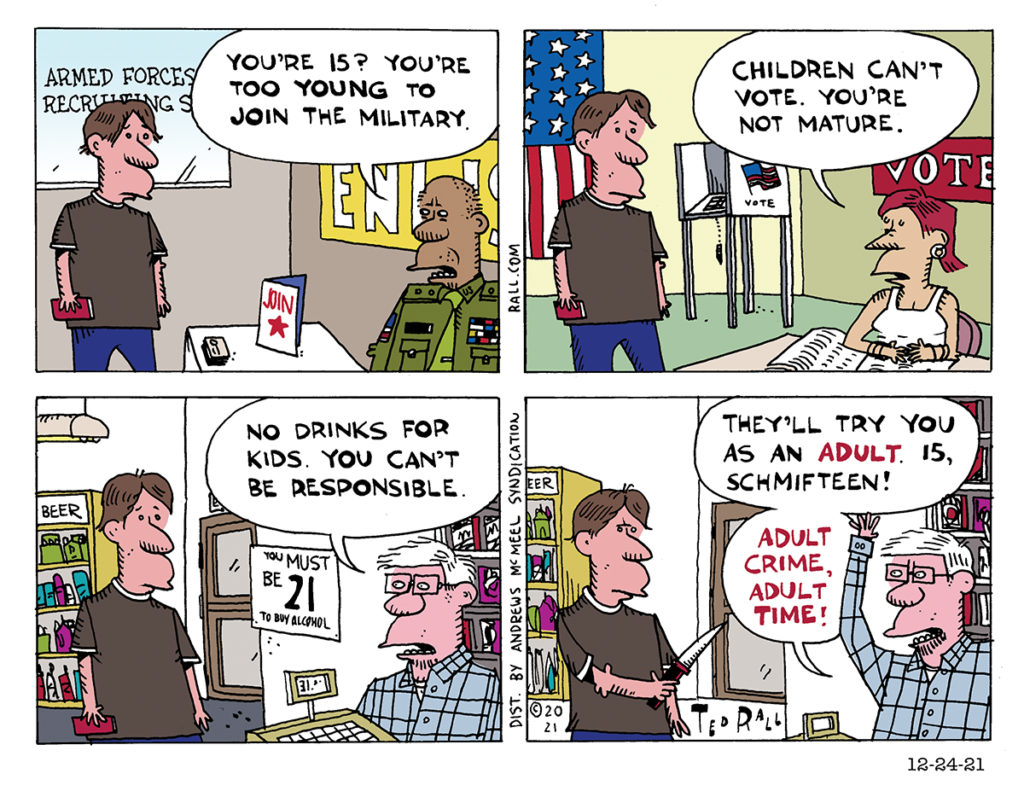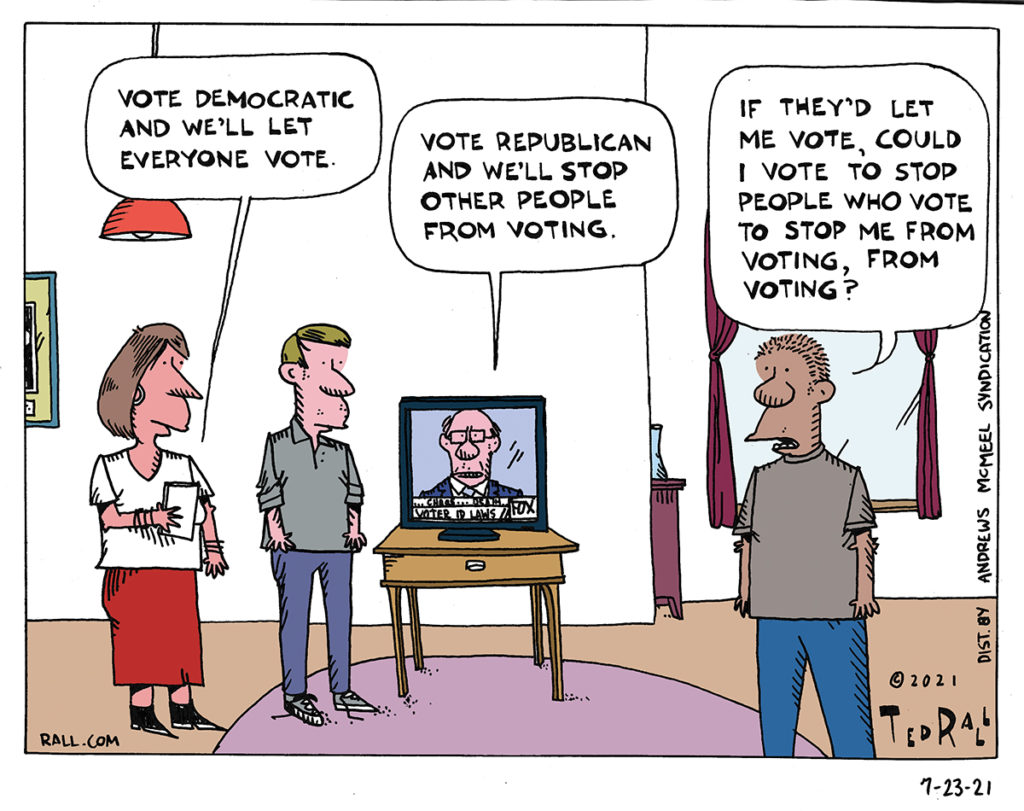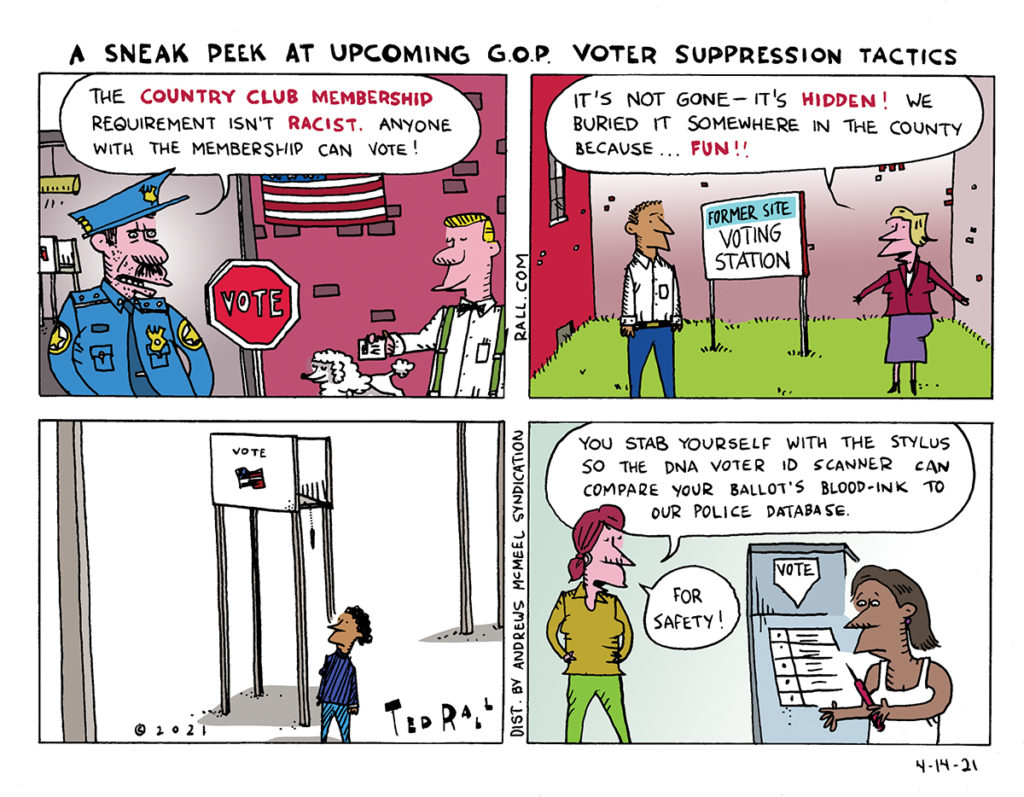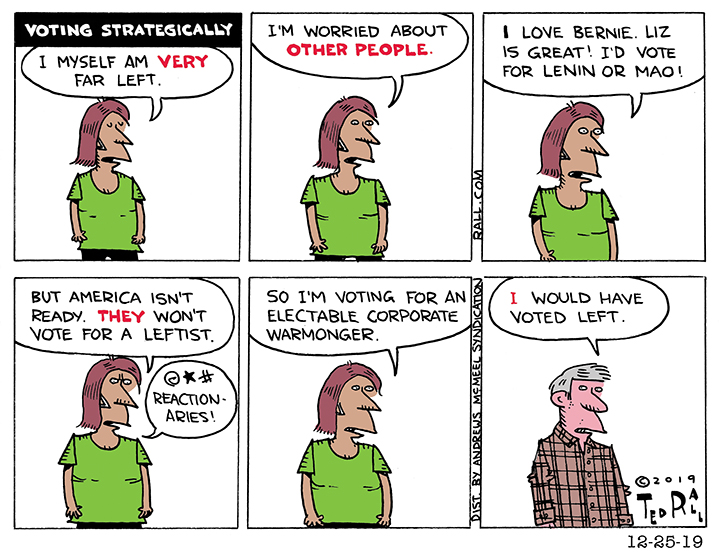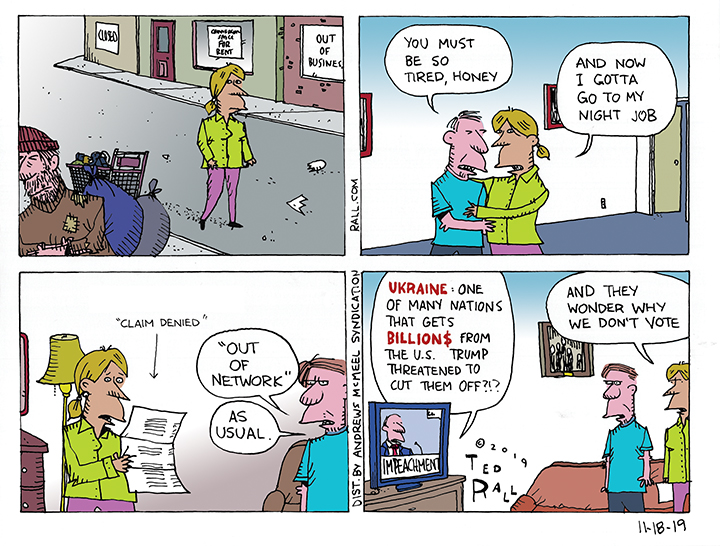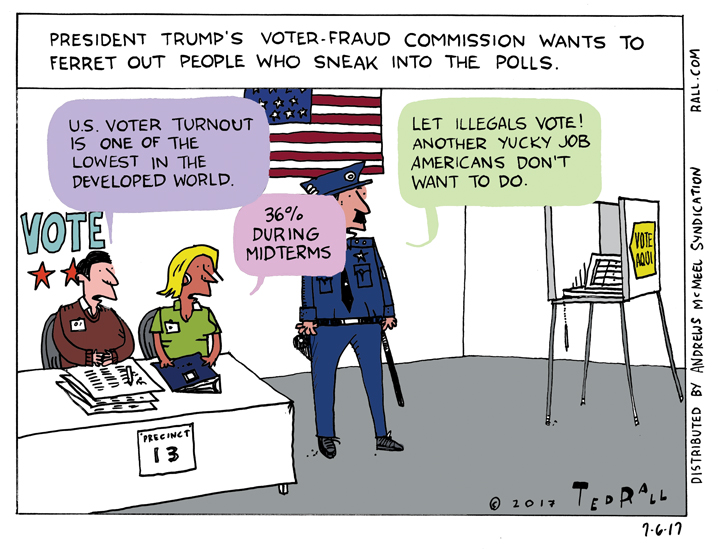Oxford Michigan school shooter Ethan Crumbley is merely the latest child, 15 years old, to be tried as an adult. If society wants to punish children as adults, it should grant them the same privileges to be consistent.
Mail-in Balloting, the 12th Amendment and Impending Doom
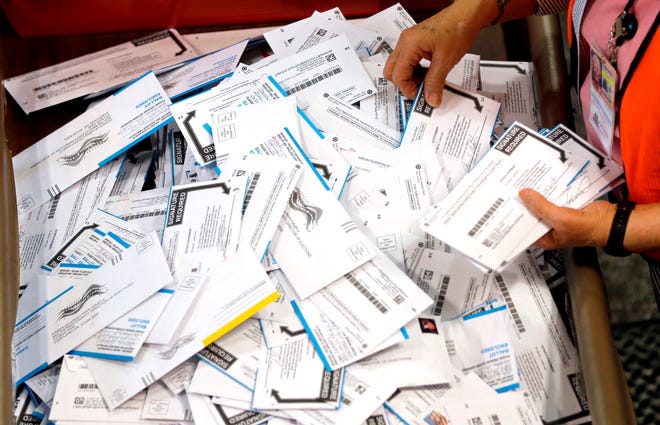
More than 80 million Americans are expected to cast mail-in ballots this fall, representing a 16-fold increase over 2016.
This is probably going to cause a constitutional crisis of epic proportions.
The problem isn’t the possibility of fraud that Donald Trump has been going on about. Cases of possible double voting or voting on behalf of dead people Daley-machine-style are statistically insignificant, amounting to at most 0.0025% of mail-in votes.
The real issue is that the ballots may not be counted on time, triggering the insanity of the 12th Amendment to the U.S. Constitution.
The date to remember is December 14th, when the delegations of the Electoral College meet in their respective states. That’s a hard deadline. Each delegation can only certify their state’s vote counts if they are 100% complete—machine votes cast in person at polling places on election day, early votes, absentee ballots, write-ins and, this year, COVID-19 mail-in ballots. If the state fails to certify on time, its electoral college votes aren’t counted.
Within each state, there is a canvassing/certification deadline for county officials to submit their results. Most are in late November. California, with a December 11th deadline, cuts it close and usually files its national certification last.
State election officials are doing their best to meet the challenge. They are hiring additional staff, buying new tabulation machines and installing drop boxes. Even assuming that they will be able to hire the additional personnel they need in the midst of the coronavirus pandemic, the practical impediments to meeting the December 14th deadline are daunting. Mail-in ballots are manually opened and signatures must be visually compared, sometimes several times, to Board of Election records.
Then there are technicalities. For example, 16 states require mail-in ballots to be submitted with an extra “privacy envelope.” In the battleground state of Pennsylvania, 6.4% of absentee ballots submitted in a 2019 election were rejected because voters neglected to insert their ballot inside the privacy envelope inside the mailing envelope—a significant margin that could change the outcome on a national level. Both parties are gearing up for legal challenges about issues like this across the nation.
“Every absentee or mailed ballot, even if dropped off directly at the designated county drop box or polling center, most likely will not get counted on Election Day, and it can easily be challenged and delayed and even rejected on a technicality,” Jed Shugerman writes at Time. “Every mailed or absentee ballot, in an envelope with signatures, is its own hanging chad, its own built-in legal delay.”
If enough states are embroiled in vote-counting controversies to prevent either President Trump or former Vice President Biden from achieving the 270 electoral votes required to declare them president-elect on December 14th, the obscure 12th Amendment kicks in.
Used only once—in 1825 to elect John Quincy Adams—the 12th Amendment triggers a bizarre “House of Cards” series of remedies guaranteed to eliminate any remaining belief that the Framers wrote a perfect document designed to withstand the test of time, or that the United States is a democracy.
After the new 117th Congress convenes on January 3rd, the House of Representatives would vote to elect the president and the Senate would elect the vice president. “Each state delegation gets one vote, and 26 votes are required to win [out of 50 states],” reports the Associated Press. “In the Senate…each senator gets a vote, with 51 votes [out of 100 seats] required to win.”
Even if Democrats enjoy another “blue wave” election that allows them to pick up congressional seats, they will not capture 26 state delegations in the House of Representatives. Trump would win. If Democrats have taken back the Senate, they could select a vice president to replace Mike Pence.
It wouldn’t matter if a newspaper recount were to determine later on that Biden should have won both a popular and electoral vote landslide. Trump would remain in the White House.
The Democratic Party and its allies in the media have been pushing mail-in balloting, but voters who want to see Joe Biden elected and are willing to brave the health risks should consider showing up for early in-person voting. In-person ballots are far less susceptible to rejection over technical issues like security envelopes, they are counted immediately and they thus meet the December 14th deadline for certification.
As my readers are aware, I do not support either Trump or Biden and will be voting third party, probably for the Greens, this fall. But I don’t support disenfranchisement either. I want everyone’s will to be expressed.
No matter what happens, no matter who wins, American politics are about to become extremely dangerous. Democracy fails when the losing side refuses to accept the legitimacy of the winning side. That will certainly be the case this year.
(Ted Rall (Twitter: @tedrall), the political cartoonist, columnist and graphic novelist, is the author of the biography “Political Suicide: The Fight for the Soul of the Democratic Party.” You can support Ted’s hard-hitting political cartoons and columns and see his work first by sponsoring his work on Patreon.)
Delay the Election? Presidents Often Do Things They Can’t Do
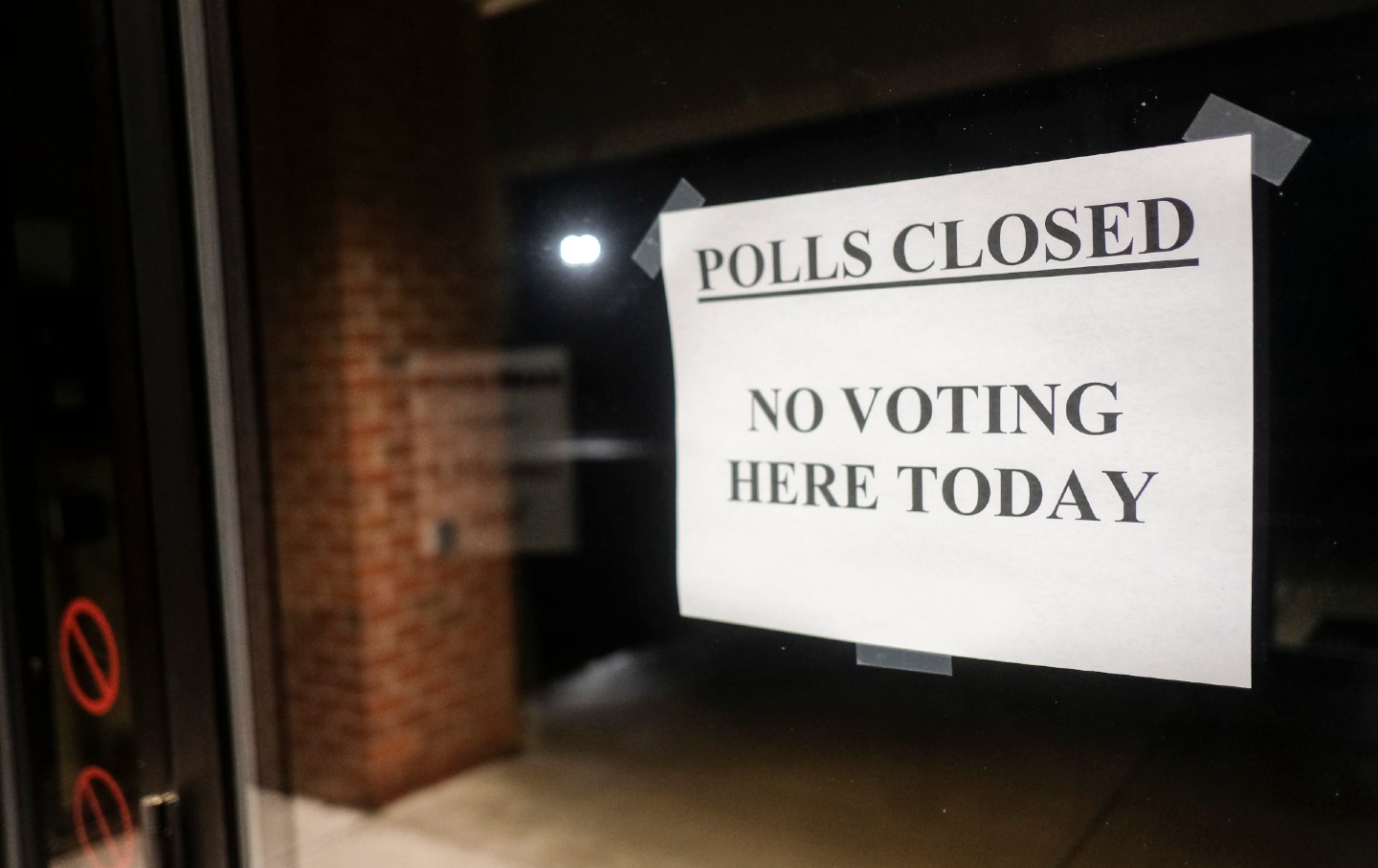 The stock response to President Donald Trump’s suggestion that the general election might be delayed because voting during a pandemic would involve a record number of mail-in ballots, a format he argues is unreliable and susceptible to fraud, is that he doesn’t have that power.
The stock response to President Donald Trump’s suggestion that the general election might be delayed because voting during a pandemic would involve a record number of mail-in ballots, a format he argues is unreliable and susceptible to fraud, is that he doesn’t have that power.
NBC News is typical: “The president has no power to delay an election.” [Emphasis is mine.]
What the president understands, and most mainstream commentators fail to accept, is that it is easier to ask for forgiveness than to get permission. That goes double when the powers in question are limited by a document that lies in tatters, repeatedly ignored.
Liberal politicians and news outlets point out that the Constitution assigns the scheduling of elections exclusively to Congress. Republicans tepidly (and troublingly) stopped short of denying Trump’s power to push back the big day, while insisting that the election ought to take place on time. “Never in the history of this country, through wars, depressions and the Civil War, have we ever not had a federally scheduled election on time. We will find a way to do that again this November 3rd,” Senate Majority Leader Mitch McConnell said.
In an era of rampant cynicism it is sweetly naïve and the amusingly charming to see Americans put so much faith into the constitutional checks and balances they learn about in high school civics class. “‘Trump can’t delay the election,’ experts say,” reads a headline in The Washington Post.
Since when has a 221-year-old piece of paper stopped presidents from doing anything?
I think first of war powers. Article 1, Section 8 of the U.S. Constitution clearly states that the right “to declare war” resides exclusively with Congress. Such key founders as George Washington, James Madison, Thomas Jefferson and Alexander Hamilton—men whose right to define original intent can hardly be questioned—believed that presidents could not dispatch troops without legislative approval except in cases of immediate self-defense. Congress signed off on sending soldiers and sailors to the Quasi-War with France in 1798, naval conflicts with the Barbary States of Tripoli and Algiers, and clashes with Native American tribes in the West.
Congress has since abdicated its war-making powers to the executive branch. Congress hasn’t issued a formal declaration since World War II. Yet we have fought countless wars. Presidents have launched military attacks against Korea, Vietnam, Libya, Grenada, Lebanon, Panama, Serbia, Syria, Iraq and Afghanistan. Some of these wars of aggression were legalistically constructed as “police actions” or “peacekeeping missions” under the aegis of the UN. The fact remains, this is not what the drafters of the Constitution intended. And it has never been amended. Presidents do what they want; lawyers twist logic to justify their illegal slaughters.
President Abraham Lincoln earns democracy points for holding the 1864 election during the Civil War. Yet he suspended habeas corpus and ignored a ruling by the chief justice of the U.S. Supreme Court saying that he didn’t have the power to do so. George W. Bush’s Military Commissions Act of 2006 also suspended habeas, for anyone the U.S. government arbitrarily defined as an “enemy combatant.” Until the Supreme Court ruled against him two years later, Congress was complicit with the MCA. Even after the court ruling, the internment facility at Guantánamo Bay remains open; 40 men remain there, not one of whom has ever been charged or tried under basic constitutional standards.
FDR almost certainly didn’t have the constitutional right to send 127,000 Japanese-Americans to internment camps during World War II. Yet he did.
From domestic surveillance by the NSA that violates the agency’s founding charter to asset forfeiture programs that allow the police to seize money and property from people who have never been charged, much less convicted of a crime, Americans live in a society oppressed by a political class that takes no notice of constitutional limits it deems inconvenient.
Does the president have the legal right to delay an election? No.
Does he have the power? Yes, unless We The People refuse to accept it.
(Ted Rall (Twitter: @tedrall), the political cartoonist, columnist and graphic novelist, is the author of the biography “Political Suicide: The Fight for the Soul of the Democratic Party.” You can support Ted’s hard-hitting political cartoons and columns and see his work first by sponsoring his work on Patreon.)
Democrats, Always in Touch with the Concerns of the American Voter
Democratic and many Republican voters share the same priorities in their lives. They want to live in a safer world. They want a real healthcare system, a cleaner planet, jobs that pay well, less poverty all around. So why is the Democratic Party singularly focused on impeaching President Trump over his attempt to influence the president of Ukraine?
8 Ways to Fix America’s Messed-Up Presidential Elections
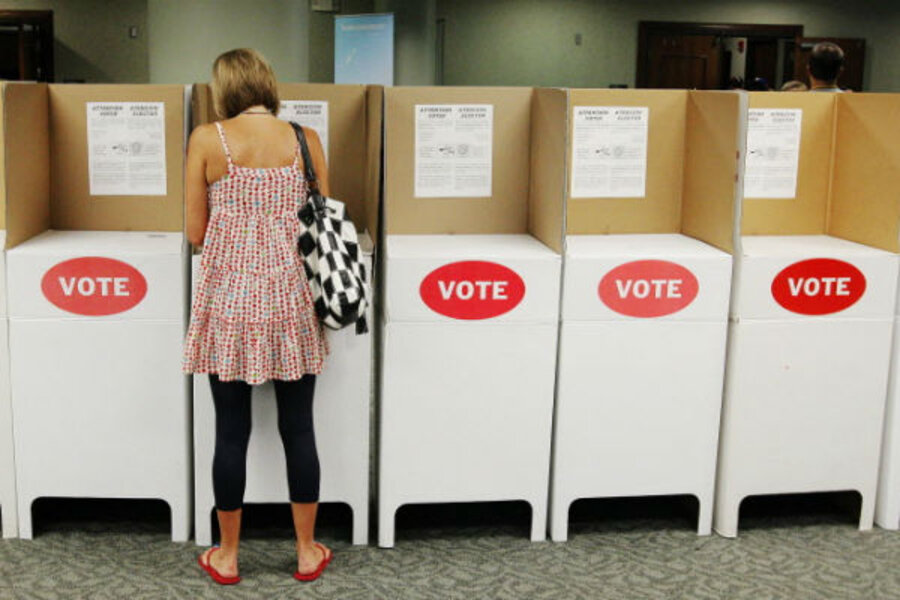
In 2016 there were 17 major candidates for the Republican presidential nomination, so many they had to have two sets of debates—and the guy who won was the first of all. Seven pundit-viable candidates have declared for 2020 on the Democratic side, more probably on the way, yet many Democrats say they’re not excited by any of them.
There must be a better way.
Presidential campaigns could be improved—streamlined, made more relevant to more voters and their worries, and likelier to result in better outcomes—and it wouldn’t require revolutionary change, just common-sense reforms.
In a representative democracy the goal ought not to be engagement for its own sake. You want voters to vote because they’re vested in the outcome; you want candidates who, after they’re elected, work hard to fix the biggest problems. The ideal politician is responsive and accountable to the citizenry. Otherwise people look at politics and think “what a load of crap, it makes no difference to me.”
First, take a step back: get rid of jungle primaries and open primaries. Both of these newfangled experiments were marketed as ways to increase voter turnout and encourage moderation. They don’t.
In a jungle or open-participation primary like in California the top two vote-getters, regardless of party, advance to a second final round. Trouble is, both might be from the same party, disenfranchising the other party’s voters during the general election. If one party’s candidates split the vote, the minority party can win. Either scenario depresses voter interest and participation. In an open primary voters can cross party lines to vote in the other party’s primary. Studies show that open primaries do not result in victories by more moderate candidates (assuming that’s desirable); Hillary Clinton’s 2016 campaign shows what happens when a party whose electorate has moved way left is asked to turn out for a centrist.
Either we have parties and party identification or we don’t. Jungle and open primaries are mere mush.
Second, amend Article II of the Constitution. The requirement that only “natural born” citizens over age 35 may run for president ought to be abolished. If you’re mature enough to decide who gets to hold an office, you can hold it. The “natural born” requirement effectively turns naturalized Americans like Arnold Schwarzenegger into second-class citizens and opens the door to stupid discussions like whether John McCain, born in the former Panama Canal Zone, and Ted Cruz (born in Canada) qualifies. France, Germany, Great Britain and Israel are some of the countries that allow naturalized citizens to become head of state.
Opening the presidency to talented young politicians like Alexandria Ocasio Cortez (age 29) would reduce the (accurate) perception that top-tier U.S. politics is a hetero white male game.
Third, give presidential debates back to the League of Women Voters. The LWV passed the sponsorship torch to the Commission on Presidential Debates in 1988 because the two parties wanted to control “the selection of questioners, the composition of the audience, hall access for the press and other issues.” Then-League president Nancy Neuman complained at the time: “It has become clear to us that the candidates’ organizations aim to add debates to their list of campaign-trail charades devoid of substance, spontaneity and honest answers to tough questions.”
Neuman was prescient: since 1988 the debates have become soft-ball pabulum. Controlled by the two parties, the Commission excludes third-party candidates from participating. In 2012 the Commission even had the Green Party presidential candidate tied to a chair for eight hours for the crime of trying to participate in democracy. The LWV wasn’t perfect but it was independent.
Fourth, level the campaign financing playing field. The Citizens United Supreme Court decision that enshrined pay-to-play can be abolished with the passage of a bill limiting or controlling outside donations. As with food, France does it better: whereas top individual donors to Hillary Clinton and Donald Trump gave more than $20 million each, the cap is €7,500 in France. There are two rounds in French presidential elections. Spending is severely restricted. “To help even out the playing field a little between bigger and smaller parties, campaign expenses can’t legally go over a certain threshold, €16.8 million for the first round, and €22.5 million for the second round,” according to The Local. That’s tiny compared to the $2.6 billion spent by Clinton and Trump in 2016.
U.S.-style political TV ads are banned in France. No matter how small their party, each candidate gets a small number of official statements on the air. In the second-round general election, the airtime of each candidate is exactly equal.
Like France, we can and should limit campaign spending to give new and outside voices an equal chance at getting their opinions out to voters.
Fifth, make voting simultaneous and easier. The major flaw with early voting is, what if big campaign news—one of the candidates talking about “grabbing their pussy,” say—breaks after you voted in October? It’s not like you can take your vote back. Make Election Day a national holiday (as it is in most developed countries) and let people vote on their computers or smartphones. 89% of Americans use the Internet; two out of three do their banking online. How great would it be if candidates’ policy positions and detailed explanations of ballot initiatives could be linked directly via an election app?
Sixth, and most likely to be controversial, is my list of American citizens who should not be permitted to run for president.
- If you’re an incumbent officeholder, you should not run. Finish your term first, complete your commitment to the voters of your state or district.
- If you cannot pass a simple test about the U.S. and its political system, you should not be allowed to run. We’ve had too many idiot presidents already. What is the Second Amendment? What is the capital of Puerto Rico? Which branch of government may declare war? How many members are there in Congress? Ten questions, you must correctly answer seven.
- If you own investments in a business, stock or other investments, or hold office in a company, you should not present yourself as a candidate for the presidency. Conflicts of interest should not be permitted; divest and stick your cash in a 0.3% annual interest savings account. Serve the people, not yourself.
- If a close family member by blood or marriage served as president or vice president, you should not run. Your spouse served? Your sibling? Your parent? Find another job. America is a big country and not a hereditary monarchy; give someone from another family a chance.
Seventh, abolish the Electoral College.
Eighth, make it easier for third parties to run by loosening ballot-access rules. Reduce the number of signatures required to get on the ballot. Get rid of laws requiring that you get certain percent of the vote. More choices means more options means greater likelihood that you agree with someone who’s on the ballot.
(Ted Rall (Twitter: @tedrall), the political cartoonist, columnist and graphic novelist, is the author of “Francis: The People’s Pope.” You can support Ted’s hard-hitting political cartoons and columns and see his work first by sponsoring his work on Patreon.)
SYNDICATED COLUMN: Why Blended Primaries Are an Assault on Democracy

California’s “jungle primary” system, in which the two candidates who win the most votes advance to the general election in November regardless of their party affiliation, might have resulted in several bizarre outcomes. Look out: given the state’s role as a political trendsetter, this weirdness could go national someday.
Two Democrats could have wound up facing off against one another for governor, leaving the state’s Republicans with no candidate to support. Democrats narrowly avoided getting shut out of four Congressional races in majority Democratic districts, which would have led to a twisted form of antimajoritarianism. Most citizens of a district would not have had a chance to vote for a candidate representing their preferred party.
Democracy dodged a bullet — this time.
Voters weren’t as lucky in 2012, two years after Californians approved a ballot referendum instituting the top-two scheme. Six candidates ran for the U.S. House seat representing the 31st district, which had a clear plurality of Democrats. Because there were four candidates on the Democratic side to split the vote, however, only the two Republicans made it to the general election.
In 2016 Democrat Kamala Harris won California’s U.S. Senate seat, against a fellow Democrat. Republican candidates had been eliminated in the top-two primary. Sixteen percent of voters, no doubt including many annoyed Republicans, left their senate ballots blank, the highest rate in seven decades.
Proponents argued in 2010 that jungle primaries would lead to the election of more moderates. “We want to change the dysfunctional political system and we want to get rid of the paralysis and the partisan bickering,” said then-outgoing California governor Arnold Schwarzenegger, a moderate Republican, after voters approved Proposition 14. But there is no evidence the jungle primary system has led to more moderate candidates, much less to more victorious moderate candidates.
“The leading [2018] Democratic contenders [for governor]…have pledged new spending on social programs,” Reid Wilson reports in The Hill. “The leading Republicans…are pitching themselves as Tea Party allies of President Trump.” These candidates reflect an electorate with whom polarization is popular. “Republicans are in a Republican silo. Democrats are in a Democratic silo. And independents don’t show up in the numbers that one might hope,” notes John Pitney, a political scientist at Claremont McKenna College and a former spokesman for the Republican National Committee.
A bland cabal of militant moderates controls the media, which they use to endlessly promote the same anti-party line: American politics are too polarized, causing demagoguery, Congressional gridlock and incivility at family gatherings. Centrism must be the solution.
It is a solution without a problem.
In the real world where actual American voters live, partisanship prompts political engagement. Hardcore liberals and conservatives vote and contribute to campaigns in greater numbers than swing voters. Rather than turn people off, partisanship makes for exciting, engaging elections — which gets people off their couches and into the polls, as seen in 2016.
As seen in 2012, moderation is boring.
It’s also becoming irrelevant. A 2014 Pew poll found that the most politically active members of both major parties are increasingly comprised of ideological purists: 38% of Democrats were consistent liberals, up from a mere 8% in 1994. Among Republicans 33% were consistent conservatives, up from 23%. It’s a safe bet those numbers will continue to rise.
Media trends and vote counts are clear. People prefer sharply defined political parties. Reaching across the aisle feels like treason. Compromise is for sellouts. A strident Donald Trump and a shouting Bernie Sanders own the souls of their respective parties.
Yet, defying the will of the people, shadowy organizations like No Labels and the Independent Voter Project and people like the late Pete Peterson continue to promote party-busting electoral structures like California’s “jungle primary” and so-called “open primaries” in which registered Democrats and independents can vote in Republican primaries and vice versa. And it’s working. Washington, Nebraska and Louisiana have versions of jungle primaries; 23 states have open presidential primaries.
These blended primaries purport to promote democracy. They’re really antidemocratic wolves in reasonable-sounding clothing.
Far more voters turn out for general elections (42% in California’s previous gubernatorial election in 2014), not primaries (25%). Blended primaries disenfranchise voters while placing a disproportionate amount of power in the hands of the few who turn out for primaries.
Despite the possibility of organized mischief-making, the threat posed by an army of Democrats cross-voting for the least-feasible Republican in a primary race (and vice versa) remains purely theoretical. However, there is a real-world concern: when a jungle primary shuts out one party from a major race like for governor or senate, it tends to depress turnout among the excluded party’s supporters in the general election, which can have a ripple effect down-ballot, even on races in which both parties have a standardbearer.
Like it or not — and I don’t — we still have a two-party system. Representative democracy would be better served by a more inclusive regime that broadens the ideological spectrum, whether it’s rank-choice voting or moving to a European-style parliamentary system or something else entirely. Until we think things through and have a new system to replace it, the current two-party system ought not to be insipidly sabotaged as though nibbled to death by feckless ducks.
(Ted Rall (Twitter: @tedrall), the political cartoonist, columnist and graphic novelist, is the author of “Francis: The People’s Pope.” You can support Ted’s hard-hitting political cartoons and columns and see his work first by sponsoring his work on Patreon.)
What’s So Bad About Illegal Voters?
President Trump’s voter-fraud commission made news when states refused to share personal voter data with it. But considering the fact that the U.S. has one of the lowest voter turnout rate among the democracies, maybe we should be more grateful to the few people who sneak into the polls to vote illegally.

